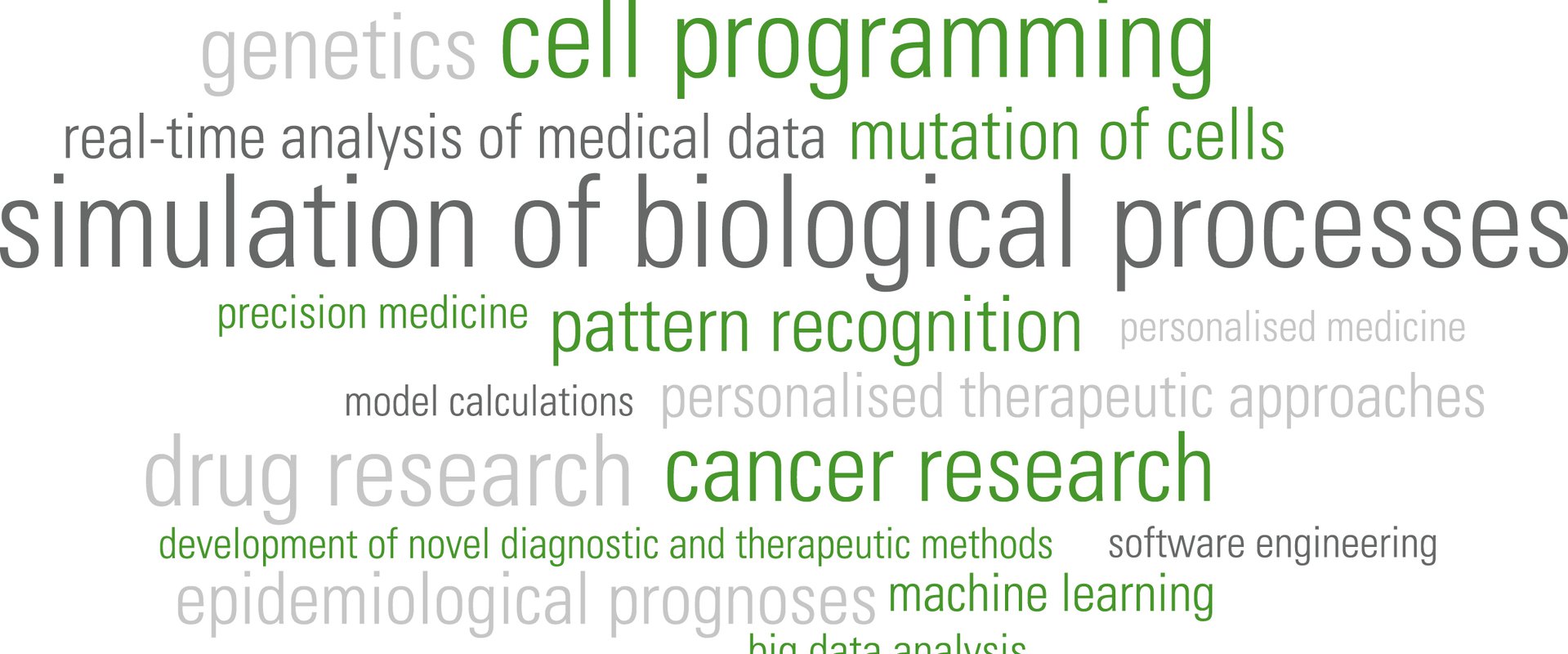Vortragsreihe 威尼斯赌博游戏_威尼斯赌博app-【官网】ical Information Sciences
Allgemeine Informationen zur Vortragsreihe

?
?
Die Zukunft der medizinischen Forschung und Versorgung ist personalisiert, digitalisiert und datengetrieben. Bereitstellung, Analyse und Interpretation dieser Daten sind auf disziplinübergreifende Kooperationen angewiesen. Auf diese Weise entstehen an der Schnittstelle von 威尼斯赌博游戏_威尼斯赌博app-【官网】izin und Informatik die Grundlagen für medizinischen Fortschritt.
Eine Reaktion auf diese Entwicklung ist der sukzessive Auf- und Ausbau des Forschungs- und Studienschwerpunktes 威尼斯赌博游戏_威尼斯赌博app-【官网】ical Information Sciences am Standort Augsburg. Im
Wintersemester 2022/2023 fand erstmalig eine gleichnamige Vortragsreihe statt, die aktuelle Fragestellungen aus der Wissenschaft thematisiert und Einblicke in entsprechende Forschungsbereiche und Anwendungsgebiete gibt.
?
?
?
Die Veranstaltungen der Vortragsreihe 威尼斯赌博游戏_威尼斯赌博app-【官网】ical Information Sciences finden im aktuellen Wintersemester immer donnerstags um 16:00 Uhr an der Fakult?t für Angewandte Informatik in H?rsaal N2045?statt.
?
Falls Sie Interesse an einem Zugriff auf den geteilten, elektronischen Kalender der Vortragsreihe haben, schreiben Sie gerne eine E-Mail an?office.bioinf@informatik.uni-augsburg.de.
?
Die Veranstaltungen werden au?erdem per Livestream an die vier Standorte der? CCC-WERA-Allianz?übertragen. Wir bitten bei Interesse an einer Teilnahme am Livestream um eine kurze pers?nliche Anmeldung per E-Mail an office.bioinf@informatik.uni-augsburg.de.
?
N?here Informationen zu den Referentinnen und Referenten sowie zu deren Votr?gen erhalten Sie rechtzeitig an dieser Stelle sowie regelm??ig über den offiziellen MIS-Newsletter, für den Sie sich unten auf dieser Seite registrieren k?nnen.
?
Die Vortr?ge richten sich an ein interessiertes Fachpublikum. Vortragssprache ist Englisch.
?
?
Im Vorlauf der Vortr?ge wird zudem die M?glichkeit zur Wahrnehmung einer pers?nlichen Sprechstunde mit der oder dem Vortragenden des? jeweiligen Tages angeboten, um sich bspw. über wissenschaftliche Fragestellungen, Forschungsthemen oder Kooperationsm?glichkeiten auszutauschen. Bei Interesse bitten wir Sie, sich rechtzeitig über eine Nachricht an?office.bioinf@informatik.uni-augsburg.de für einen Sprechstundentermin anzumelden.
?
Im Folgenden finden Sie den Ablaufplan für das Wintersemester 2025/2026?mit weiterführenden Informationen zu den einzelnen Vortr?gen:
?
?
ABLAUFPLAN für das Wintersemester 2025/2026
Veranstaltungsort: H?rsaal N2045 (Fakult?t für Angewandte Informatik)
?
Abstract
?
?
Referent:
?
Kurzbiographie
?
Veranstaltungsort: H?rsaal N2045 (Fakult?t für Angewandte Informatik)
?
Abstract
?
?
Referent:
?
Kurzbiographie
?
Veranstaltungsort: H?rsaal N2045 (Fakult?t für Angewandte Informatik)
?
Abstract
?
?
Referent:
?
Kurzbiographie
?
Veranstaltungsort: H?rsaal N2045 (Fakult?t für Angewandte Informatik)
?
Abstract
?
?
Referent:
?
Kurzbiographie
?
Veranstaltungsort: H?rsaal N2045 (Fakult?t für Angewandte Informatik)
?
Abstract
?
?
Referent:? Dr. Santiago Cepada
?
Kurzbiographie
?
Veranstaltungsort: H?rsaal N2045 (Fakult?t für Angewandte Informatik)
?
Abstract
?
?
Referent:? Prof. Dr. Philipp M. Altrock
?
Kurzbiographie
?
Veranstaltungsort: H?rsaal N2045 (Fakult?t für Angewandte Informatik)
?
Abstract
?
?
Referent:
?
Kurzbiographie
?
Veranstaltungsort: H?rsaal N2045 (Fakult?t für Angewandte Informatik)
?
Abstract
?
?
Referent:
?
Kurzbiographie
?
Veranstaltungsort: H?rsaal N2045 (Fakult?t für Angewandte Informatik)
?
Abstract
?
?
Referent:
?
Kurzbiographie
?
Veranstaltungsort: H?rsaal N2045 (Fakult?t für Angewandte Informatik)
?
Abstract
?
?
Referent:
?
Kurzbiographie
?
Veranstaltungsort: H?rsaal N2045 (Fakult?t für Angewandte Informatik)
?
Abstract
?
?
Referent:
?
Kurzbiographie
?
Veranstaltungsort: H?rsaal N2045 (Fakult?t für Angewandte Informatik)
?
Abstract
?
?
Referent:? Prof. Dr. Janina Bahnemann
?
Kurzbiographie
?
Veranstaltungsort: H?rsaal N2045 (Fakult?t für Angewandte Informatik)
?
Abstract
?
?
Referent:
?
Kurzbiographie
?
Veranstaltungsort: H?rsaal N2045 (Fakult?t für Angewandte Informatik)
?
Abstract
?
?
Referent:
?
Kurzbiographie
?
Veranstaltungsort: H?rsaal N2045 (Fakult?t für Angewandte Informatik)
?
Abstract
?
?
Referent:
?
Kurzbiographie
?
Abonnement des MIS-Newsletters
Wir freuen uns über Ihr Interesse am Forschungs- und Studienschwerpunkt 威尼斯赌博游戏_威尼斯赌博app-【官网】ical Information Sciences!
?ber das folgende Anmeldeformular k?nnen Sie den regelm??igen Erhalt von aktuellen Informationen sowie Hinweisen zu Veranstaltungen mit Bezug zum Schwerpunkt MIS anfordern.
?
?
Anmeldeformular
Einsendung erfolgreich
Vielen Dank
?
?
Datenschutzhinweis
?
Mit dem Abonnement unserer 威尼斯赌博游戏_威尼斯赌博app-【官网】ien stimmen Sie sowohl der Verarbeitung Ihrer Daten für den Versand der ausgew?hlten 威尼斯赌博游戏_威尼斯赌博app-【官网】ien als auch den?Datenschutzrichtlinien der Universit?t Augsburg?zu. Die erhobenen Daten dienen ausschlie?lich dem Versand der von Ihnen ausgew?hlten 威尼斯赌博游戏_威尼斯赌博app-【官网】ien und der Dokumentation Ihrer diesbezüglichen Zustimmung. Es erfolgt keine anderweitige Verarbeitung und keine Weitergabe der Daten an Dritte.
?
Sie k?nnen Ihr Abonnement und die Einwilligung zur Speicherung Ihrer Daten jederzeit ohne Angabe von Gründen widerrufen. Bitte schicken Sie hierzu eine formlose E-Mail an? office.bioinf@informatik.uni-augsburg.de.

